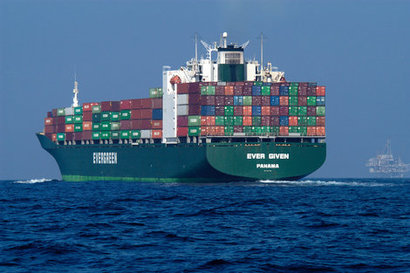
The vessel operated on a roundtrip voyage from Singapore to Brazil, successfully using 65 tonnes of fuel blend with 20 percent MASH Makes biofuel in its auxiliary engine.
“This trial proves that MASH Makes’ biofuel is suitable for marine engines, and it marks an important milestone towards bringing the fuel into our operation” said Henrik Røjel, Head of Decarbonisation and Climate Solutions, NORDEN
The trial demonstrated MASH Makes’ biofuel as, technically, a drop-in fuel, compatible with existing systems, being capable of reducing reliance on fossil fuels in specific marine applications. The results identified a practical path for shipowners to cut emissions without waiting for new infrastructure.
If the new agreement by the International Maritime Organisation (IMO) to cap and price excess emissions globally is ratified in October 2025, this solution will enable shipowners to start significantly reducing their emissions well before the agreement takes effect in 2028.
The vessel’s roundtrip from Singapore to Brazil successfully used 65 tonnes fuel, containing 20 percent of MASH Makes biofuel in its auxiliary engine.
Shipping contributes nearly 3 percent of global greenhouse gas emissions, and is responsible for 90 percent of all transported goods and raw materials in the world.
The MASH Makes biofuel, unlike emerging fuels like green hydrogen or ammonia, which require new infrastructure, is designed to integrate directly with existing systems. It is produced through pyrolysis, which converts agricultural residues into renewable energy and is comparable with ISO8217 marine fuel standards, designed to work as a drop-in fuel for the shipping industry.
For every tonne of biofuel produced, MASH Makes also generates 1.8 tonnes of biochar, a stable, carbon-rich material applied to soil. Each tonne of biochar locks 3.14 tonnes of CO₂ from the atmosphere into the ground, creating a direct link between fuel production and carbon removal. This means every tonne of MASH biofuel is associated with 5.7 tonnes of CO₂ being sequestered permanently in the soil.
The company is now working with the Maersk Mc-Kinney Møller Centre for Zero Carbon Shipping to demonstrate how the Centre’s life cycle methodology applies to its biochar and biofuel pathway. The collaboration focuses on assessing full system emissions and exploring how co-products like biochar - with carbon removal potential - can be transparently accounted for, and how this contributes toward maritime decarbonisation goals.
MASH Makes production plant in Karnataka, India currently processes 23,700 tonnes of agricultural waste annually, producing 3,400 tonnes of bio-oil. A second plant under construction will triple capacity. The goal is to remove over one gigatonne of CO₂ by 2040.
For additional information:

